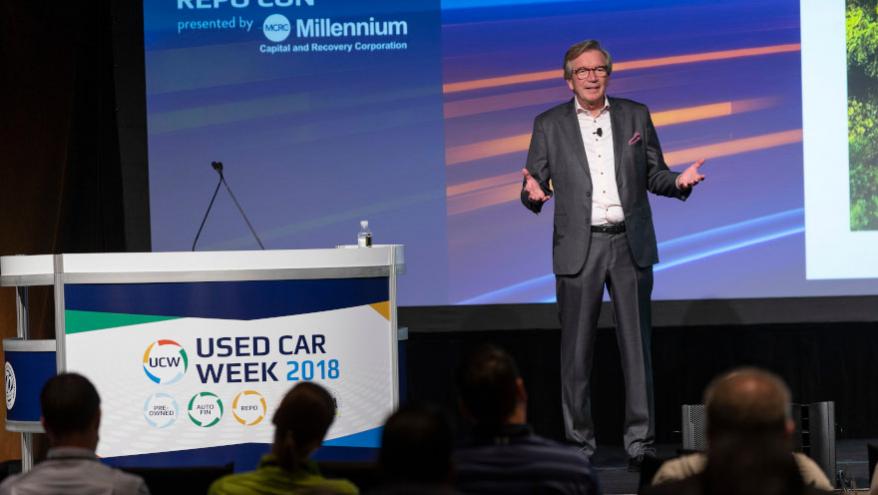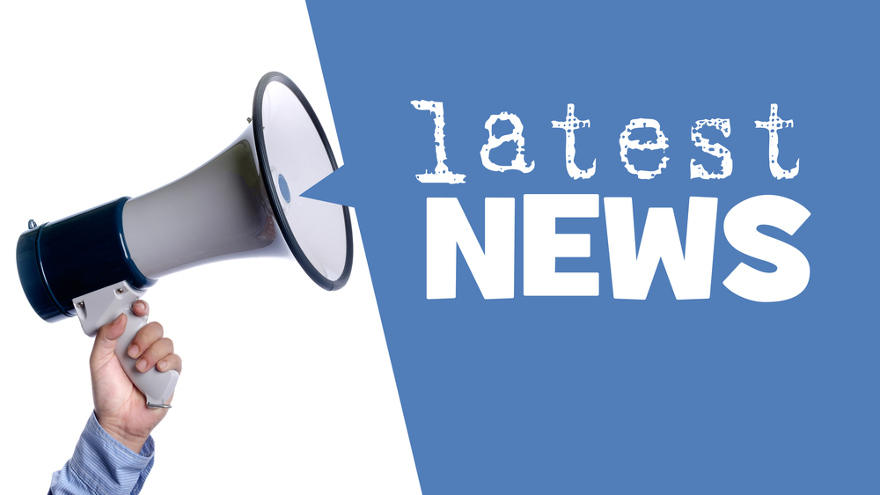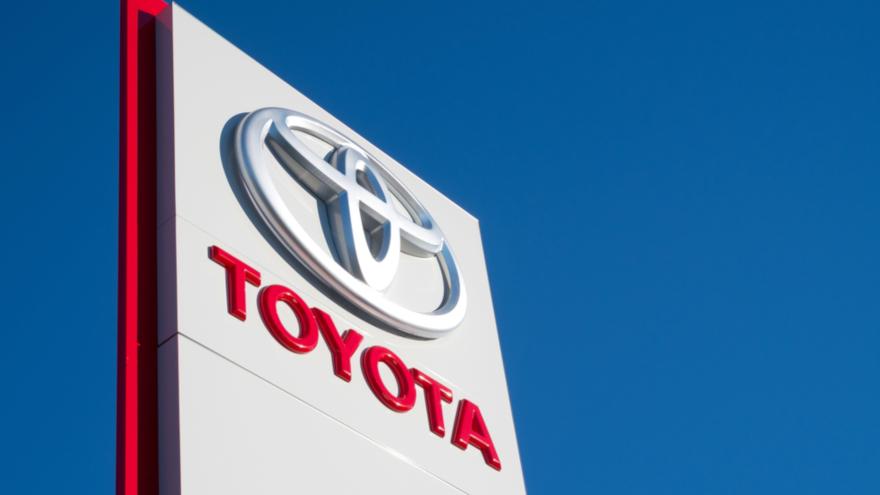A new technology partnership expansion aims to help auto dealers increase revenue and improve operations in sales, service, and accounting, in part by delivering more actionable “spiffs” accountability that helps drive sales performance.
Automotive dealer management systems provider DealerBuilt is expanding its integration with channel partner Spiffit, a provider of Software-as-a-Service sales incentive management applications. The two companies have been partners for four years, and their previous integration was on the service side of the business. The new expansion is now for the sales and accounting side.
The companies say DealerBuilt DMS clients using the Spiffit platform will see improved efficiency in managing their various sales performance incentive funds.
The Spiffit program automates what the companies describe as burdensome manual incentive program record-keeping and reporting. They note in a news release that the program tracks the spiff incentive programs of dealership OEMs, vendors and dealer groups and displays liabilities, reconciles claims and compiles downloadable program data for what they describe as accurate reporting and fulfillment.
The platform is automated and DMS-driven, and the companies say it allows real-time sharing of sales, financial and performance metrics by employee and department. A feature called Spiffit Scoreboards engages the staff and members of the management team.
DealerBuilt says clients using Spiffit will see accurate and accessible digital documentation for all contests and pay plans. The companies say that will simplify incentives program administration, accounting, and payroll and add that it will help DealerBuilt clients eliminate end-of-month crunching of manual incentives reports. The companies add that those reports can be questionable, time-consuming and ineffective in the area of motivation.
“DealerBuilt provides hundreds of dealers with a DMS that empowers their staff to build processes best for them, encompassing a system centered around their customers, which makes Spiffit a perfect partner," Veronica Dunford, DealerBuilt executive vice president of business development, said in a news release, and she added that the partnership’s expansion to provide performance-enhancement will help DealerBuilt clients push back margin compression.
Sean Ugrin, Spiffit founder and chief executive officer, added that DealerBuilt clients using Spiffit will now see increased sales with improved incentive program management that engages staff and management.
Columbus Fair Auto Auction (CFAA) notes that dealers can take up to seven days to prepare vehicles purchased at auction for placement on their front line. A new CFAA service aims to save time by offering mechanic, reconditioning, body shop, and transportation services for a single flat rate.
Under CFAA’s Frontline Ready service initiative, which will be available in the first quarter of this year, units will be made “frontline ready” in 48 hours, which CFAA says will save buyers resources and accelerate time-to-market.
The FLR service is available to any dealership, not just those who make purchases at the auction.
Greg Levi, president of Columbus Fair Auto Auction — a family-owned auction founded in 1959 — said in a news release that the auction created the new service under the coordination of its shop managers to help its buyers and local dealerships.
“By utilizing this service, dealers will be able to move their units from our campus directly to their lots prepared for immediate sale,” Levi said.
Perhaps dealers now shouldn’t be surprised if the operation they’re bidding against for specific vehicles in the wholesale market is Fair.
Arriving amid all of the hubbub of NADA Show 2019, the car-as-a-service provider announced it closed a $50 million debt facility from Silicon Valley Bank (SVB) to buy vehicles for its users — the latest in a series of many such transactions the company is making with institutional lenders as it scales globally.
The company highlighted the SVB debt facility complements credit lines Fair is already accessing with Credit Suisse and Goldman Sachs. It follows Fair’s closing of a SoftBank-led $385 million Series B funding round in December, which also included investments from Exponential Ventures, Munich Re Venture’s ERGO Fund, G Squared and CreditEase.
With that transaction — subject to receipt of regulatory approvals and satisfaction of other customary closing conditions — Fair has now raised nearly $500 million in equity in the past year, which it is leveraging to access a vastly larger sum of debt capital to buy cars on behalf of its customers.
“SVB is providing an innovative and flexible debt facility that supports our specific business model,” Fair chief executive officer and founder Scott Painter said. “Their forward-thinking approach is enabling companies like Fair to achieve scalable growth in the innovation economy and is a true blueprint for how tech companies should be able to access debt.”
Fair is an app that aims to put the entire end-to-end process of getting a vehicle on a customer’s phone. Users scan their license to shop pre-owned vehicle with all-in monthly payments they can afford, sign for the one they want with their finger, pick up their keys and drive it for as long as they want — with no long-term commitment or even physical paperwork.
“SVB is eager to support companies offering disruptive solutions in industries undergoing transformative change,” said Zhengyuan Lu, managing director and head of SVB’s warehouse financing group. “Fair is helping create the new mobility economy and Car-as-a-Service model, and we are thrilled to help propel its growth globally.”
Since launching in August 2017, Fair has provided cars for more than 20,000 users through its 3,000 dealer partners in 26 markets across the United States.
The company also has a nearly year-old partnership with Uber that allows potential rideshare drivers to access Fair right in the Uber app. They can pick the car they want, pay for it on a weekly basis as they use it for Uber rides and walk away whenever they want.
“Just as Fair offers a transformative experience to consumers and its dealer partners, it represents a compelling and industry-defining opportunity for investors and debt providers alike,” said Fair chairman and co-founder Georg Bauer. “We are gratified to have a forward-looking partner like SVB, which is solidifying its reputation for helping unleash big, new-economy ideas in technology.”
CDK Global unveiled some new technological programs at the recent NADA Show, including one that the company says “is modernizing automotive retail.”
CDK Global, a provider of integrated information technology and digital marketing products to the automotive retail and adjacent industries, says its products automate and integrate all areas of the dealership and buying process.
That includes targeted digital advertising and marketing campaigns and the sale, financing, insuring, parts supply, repair, and maintenance of vehicles. Updates to its Fortellis Automotive Commerce Exchange Platform is one of those programs. CDK announced the launch of Fortellis Marketplace, a central hub, similar to app stores in other industries, where retail technology providers can sell their software applications to dealers and OEMs.
CDK Global also announced that it will eliminate access fees for Fortellis, which CDK says is the world’s first open, agnostic platform for the development and marketing of automotive application programming interfaces (APIs).
CDK says the Fortellis technology platform and its Developer Network and Marketplace connects software developers, OEMs and dealers, which the company says helping them create new experiences efficiently.
Also at NADA, CDK introduced the next generation of its Dealer Management System (DMS), called Drive Flex, which the company is describing as a first-of-its-kind web-based DMS.
And in yet another CDK announcement during the time period of the NADA show, the company said Dealer Intelligence, an automotive industry platform for enterprise business intelligence, reporting and analytics, has become a participant in the CDK Global Partner Program.
Regarding the first item — updates to its Fortellis Automotive Commerce Exchange Platform with the launch of the Fortellis marketplace — the company notes that the Fortellis Marketplace allows collaboration between developers, OEMs and dealers who can share a common platform and “create solutions that will move the automotive industry forward.”
What’s the impact of that innovation, integration and personalization? The company says car buyers will find the resulting streamlined customer experience at the dealership to be useful.
The company says eliminating access fees for Fortellis will also be useful and that it will spur innovation. CDK will charge no fees to join, to publish APIs, gain access to basic reporting and support, or to market different products to users.
The company will charge a nominal transaction fee, but the company notes that with more than 120 organizations becoming active users of the platform, that has created a “thriving community” that has contributed 90 registered products and 70 active sales opportunities, as well as an increasing number of APIs being published.
“While innovations are being created throughout the industry, getting these solutions to work across providers has made adoption challenging,” Ron Frey, executive vice president and chief strategy officer, CDK Global, said in a news release. “Fortellis provides efficiency and enables plug-and-play functionality, allowing users to select the desired solution without the hassle of custom integration.”
Discussing the next generation of the Drive Flex DMS, Rajiv Amar, executive vice president and chief technology officer, CDK Global, elaborated on his statement that the product is modernizing automotive retail. The company says Drive Flex’s workflows allow dealers to hire top employees regardless of their prior DMS experience. The next generation of Drive Flex is available to dealers with one or two locations, with what the company says is an improved user interface, reduced installation times and minimal learning curves.
“With these and other new technologies, dealers have greater ability to improve the car buying experience and optimize their businesses for success,” Amar said in a news release. “We are accelerating our investment by adding more engineers to efficiently bring this innovative technology to more dealerships of all sizes in the near future.”
Finally, regarding the news that Dealer Intelligence will participate in the CDK Global Partner Program, CDK noted that Dealer Intelligence will now be part of a marketplace of applications and integrations that CDK developed to help automotive dealers succeed.
CDK adds that joining the CDK Global Partner Program is important for DI to provide dealerships with a next-generation enterprise Business Intelligence platform and that by accessing DMS data seamlessly, reliably and in near-time, DI can provide customers with the actionable intelligence they need to optimize their financial and operational performance.
"With DI, you don't have to pull your team away from the business for days of training. DI is also universally affordable," Farra Majid, CEO and cofounder of DI, said in a news release. "Obtaining CDK certification is a significant milestone for us. We're excited about helping dealerships to more profitably and efficiently manage their businesses with actionable intelligence through tomorrow's business intelligence platform."
The company says its DI Business Intelligence platform offers dealers near real-time financial and operating performance management at every management level and across every department.
Naked Lime Marketing (NLM) recently debuted a market intelligence platform that it says will provide dealers with a single data set combining transactional, demographic and behavioral customer information segments.
As a result, the tool is geared to give dealers the ability to have analytical, fact-based decision making.
The marketing, advertising and web services company rolled out the platform called Compass at the recent NADA Show, noting that the product includes Naked Lime's new reporting tool. Naked Lime describes the solution as a “high-level, consolidated reporting dashboard” that can show digital marketing performance for various NLM products.
“Intelligent marketing isn't magic and it's not going with your gut — it's science," Chris Walsh, vice president and general manager at Naked Lime, said in a news release.
“When dealers base their marketing choices on knowing what each shopper did, what people like them do, and what they're likely to do next, you have a recipe for sustainable success. Compass helps them do that," Walsh continued.
Walsh added that the new products “are the marriage of data-driven performance analysis and convenience," reiterating that the Naked Lime specialists analyze dealer marketing performance in real-time.
For more details, go to www.nakedlime.com.
Dealerships that eventually will have 2020 Toyota models in their inventory now have another feature to tout to potential buyers.
SiriusXM announced on Wednesday that it has reached what the company called a “landmark” agreement with Toyota that will expand the installation of SiriusXM to all Toyota models and trims sold in the continental U.S.
Officials said the expansion is expected to start with 2020 model year vehicles produced in the fall of this year. They added the agreement will result in SiriusXM becoming a standard feature as Toyota’s next generation head units are rolled out to Toyota cars, trucks and SUVs.
SiriusXM also mentioned the agreement extends the long-term relationship between the two companies into 2028.
Toyota customers will continue to receive a three-month introductory subscription to SiriusXM All Access, which is SiriusXM’s most expansive programming package and gives the subscriber access to SiriusXM both on the radio and via the SiriusXM app.
“This extension represents a milestone agreement between our two companies,” said Christopher Lam, senior vice president and general manager of automotive partnerships for SiriusXM.
“Our long-standing relationship with Toyota has helped grow SiriusXM to over 34 million subscribers, and we’re excited that Toyota will now offer even more customers access to all of SiriusXM’s exclusive, award-winning content,” Lam continued.
Of particular interest in the used-vehicle space, the companies highlighted customers who purchase or lease Toyota certified pre-owned vehicles will also continue to receive a three-month introductory subscription to SiriusXM All Access.
“We are committed to delivering our customers the features and services they want, and because of the strong demand we see for SiriusXM, both from our customers and dealers, we’re making SiriusXM standard across our entire model lineup,” said Steve Basra, vice president of connected technologies for Toyota Motor North America.
“By building SiriusXM into every model and trim level, it will enable us to deliver SiriusXM to more Toyota drivers than ever before,” Basra went on to say.
Dealer-to-dealer digital auction platform TradeRev continues its work to help accelerate the dealer buying and selling experience, or in the company’s words, help dealers “move metal” faster and easier.
With its MOVE METAL services, the company says users will see shorter auctions, flat fee transportation and streamlined registration.
TradeRev announced that beginning on Feb. 5 it will unveil various platform enhancements such as shortening its auction timer to speed up dealer transactions on the MOVE METAL platform. The new transaction times will be a 45-minute auction and 15-minute closing period for buyers and sellers to finalize sale details, which is a time reduction from the previous one-hour auction plus one-hour closing period.
TradeRev also announced its 2019 flat-fee transportation rates for all U.S.-based dealers. The company says it will offer heavily discounted rates well below retail transports. That along with the ability to move vehicles from coast to coast means dealers have virtual access to what TradeRev describes as a “highly active national marketplace” with thousands of other dealers.
The flat-fee transportation program is facilitated in partnership with CarsArrive Network, a TradeRev sister company under TradeRev parent, KAR Auction Services. TradeRev’s streamlined registration process will also help new dealers become TradeRev partners, and transactions can start in minutes rather than days or weeks, according to the company.
“TradeRev was built by dealers for dealers, and we’re constantly working with our dealer partners to make our marketplace as fast, fair and easy as possible,” said Becca Polak, TradeRev president and chief legal officer for KAR Auction Services, in a news release. “Time is a dealer’s most valuable commodity, and we know every auction minute saved is a minute dealers can spend fostering leads and closing retail sales. By reducing the TradeRev auction experience to a single hour, buyers will have more certainty on cars they’ve won, and sellers can move inventory off the lot faster than ever.”
The company also unveiled an accelerated registration process that allows new dealers to register and begin transacting in as little as 10 minutes.
Dealers were able to demo TradeRev and sign up through TradeRev’s accelerated registration at the recent NADA Show. Once registered, dealers were able to buy and sell live in the booth and experience TradeRev’s condition report imaging technology powered by H.
Automotive dealers have long used Facebook’s automotive inventory ads to reconnect with people who had visited their website or app.
Now, Facebook has enhanced those ads to help dealerships reach more potential customers who have shown interest in purchasing a vehicle online.
Citing a recent Facebook IQ survey, the social media company notes that 63 percent of car buyers discover new vehicles online. With Facebook’s newly enhanced ads, dealerships can now reach more prospective car shoppers based on their visits to other auto- and dealer-related pages, websites and apps.
Facebook explains how the ads work: If someone is using several car and dealership sites to research and compare vehicles, automotive inventory ads allow dealers to upload their car inventory with details such as make, model, year and location. Facebook then automatically tailors ads to show the most relevant vehicles to the right prospective buyers. People who have visited a car-related Facebook page but have not yet visited the dealership’s website are an example of those prospective buyers.
The social media company provided examples showing how the ads are bringing strong results. Facebook said that by using automotive inventory ads to reach local auto buyers, Lexus Santa Monica in California achieved 3.2 times more vehicle detail page (VDP) views and three times lower cost per VDP view compared to previous prospecting campaigns with the same budget. Castle Chevrolet in Illinois is another dealer that Facebook tracked, and that business achieved a 27-percent increase in reach using the new ads, compared to a prospecting conversion campaign using lookalike audiences.
Users can opt out of any automotive inventory ad they see, according to Facebook. All they have to do is click on the upper right-hand corner of an ad. As is the case with all Facebook ads, auto advertisers can reach customers without being able to access personal information about them.
Automotive inventory ads are now available globally for all advertisers on Facebook, Instagram and Audience Network, according to Facebook.
A representative from Lexus Santa Monica says the dealership is happy with the results mentioned earlier, such as the increase in VDP views. “Enabling Facebook automotive inventory ads for prospecting provides an efficient, cost-effective way for us to expand our campaign to reach more engaged in-market shoppers,” Brad Burlingham, vice president of marketing for LAcarGUY and Lexus Santa Monica, said in a news release.
A new pilot program could help dealers integrate data science, predictive analytics and machine learning into the remarketing process to help save time and possibly increase sales margins and cash flow.
KAR Auction Services has launched a pilot program for its Data as a Service (DaaS) suite of capabilities. KAR in 2017 acquired DRIVIN, which powers the ability of the new DaaS suite to use data and technology from across the KAR platform as well as proprietary algorithms to deliver intelligence that dealers can use. The program is meant to help dealers integrate data science, predictive analytics and machine learning into the remarketing process, saving them time and possibly helping them increase sales margins and cash flow.
KAR launched the program during the Auto Intel Council news conference at NADA Show 2019.
“Every day our customers are making inventory decisions — deciding which cars will sell quickly and profitably on their lots and how to best replenish inventory,” Joe Oliveri, general manager of KAR Data as a Service, said in a news release. “We have the capabilities to help our customers make faster, better informed decisions specific to their individual rooftops, not just their state or their market.
"Our rich data coupled with predictive analytics can pinpoint which cars will sell quickly at retail, which trade-ins to keep for retail sale and which ones should go to auction along with the auction channel that would provide the fastest sale at a fair price," Oliveri continued.
KAR notes that its DaaS capabilities can offer actionable analytics for dealer customers, as well as time and cost savings.
KAR’s ADESA business unit with more than 75 physical and online auction marketplaces is participating in the pilot along with an East Coast dealer group with nine OEM franchises. KAR is also conducting a pilot program with several dealers to provide lot analysis reports with data and recommendations for dealerships and to the individual vehicle.
“Not all vehicles are created equal. Each car has a unique value curve depending on the lifecycle of that car and a host of other economic, market, and dealer behavioral data,” Oliveri said.
Through data science, we are now starting to inform dealers participating in our pilot the likelihood a specific vehicle will sell — both retail and wholesale — and when they should dispose of identified inventory.”
The company explained pilot dealer participants will see a holistic snapshot of what is in demand. KAR also mentioned the snapshot will reveal which vehicles could provide the best return on investment and how the dealers can best dispose of less desirable vehicles.
KAR insisted that data will be relevant to the dealer’s “individual rooftop.”
The company went on to note lot-specific reports containing inventory segmentation analyses are also part of what pilot dealers receive, along with purchase recommendations and remarketing advice. That information can provide dealers with goals for the best vehicle mix, ability to sell and the best disposal channel.
KAR added that it is fine-tuning the reporting and algorithms as the pilot continues, based on feedback from pilot program dealers, sales information and market reports.
Technology company Xtime knows that the automotive industry faces margin compression, tightening competition and softening vehicle sales. Because of that, the company believes dealerships must reinvent the customer’s service department experience to increase customer loyalty and the dealer’s profits.
At the NADA show, Xtime addressed those challenges by introducing new features to Spectrum, its cloud-based service management platform.
Three improved Xtime Spectrum functions — New Consumer Scheduling, Xtime Texting and Engage Tablet Reception — will improve the service management process for consumers and dealers.
The first of those functions, a redesigned New Consumer Scheduling tool, offers what the company says is an improved booking experience for consumers that allows them to use multichannel scheduling across desktop, mobile, telephone or in-person at the dealership to more easily arrange vehicle service appointments anywhere, anytime. Features include a mobile-first design, Google login option, Find Me via phone and email, enhanced navigation and OEM branding.
An Xtime Texting Tool is the second improved function, and it will include Message Center, Xtime Messenger and Arrival Text Notification. It will help dealers receive improved status updates and participate in better customer communication, according to the company.
The new Xtime Messenger mobile phone application helps advisers engage with customers on the go and in real time, and the new Message Center works to store every customer conversation automatically in the Xtime Cloud. The new Arrival Text Notification function helps customers receive a new automated welcome message on check-in, giving consumers the ability to text their dealership at any time during the vehicle service process.
Engage Tablet Reception is the third function, featuring a new service lane check-in and check-out process that gives dealers instant access to service details and vehicle history. It is available on iOS and Android devices and offers search functionality that provides access to what the company says is a cleaner, more accurate and integrated customer-vehicle database, preventing duplicate records. The redesigned Customer Check-In functionality is now a single, clickable page with greater transparency, according to the company, and it is meant to accelerate the vehicle walk-around and inspection process.
“By harnessing the power of Spectrum to manage their fixed operations, dealers can build customer loyalty, increase retention and drive profitability,” Tracy Fred, vice president and general manager for Xtime, said in a news release.
In other Xtime news, Xtime vice president of marketing and managed services, Jim Roche, released his second book, “Fast Break: Creating a Customer-Centric Operating Philosophy for Automotive Service,” and the second phase of the 2018 Service Industry Study, by Xtime’s parent company, Cox Automotive, was also released.
“Fast Break: Creating A Customer-Centric Operating Philosophy for Automotive Service” is follow-up to Xtime’s first book on fixed operations, “Fast Lane: How to Accelerate Service Loyalty and Unlock its Profit-Making Potential,” by Roche.
The book uses more than 35 years of automotive fixed operations high-tech experience and consultation with more than 2,000 dealerships in describing how dealerships can increase their service market share and use a customer-centric philosophy to achieve profitable growth.
The book uses real-life case studies and was written to help dealers implement best practices and use a customer-centered strategy to improve a service department’s profit-making potential. The book notes that dealers must be agile and explore adopting new technology, online scheduling, courtesy mobility features and improved facilities.
“There is a huge gap of unrealized revenue potential in the service department, and dealerships must pivot now to seize that opportunity,” Roche said in a news release.
Cox Automotive’s second phase of its 2018 Service Industry Study gives dealerships insight into consumer preferences and highlights the need for a revitalized service experience.
An estimated 70 percent of consumers who purchased or leased a vehicle from a dealer did not return to them for service in the past year, and that results in an estimated $266 billion in annual lost revenue across all franchise dealers, according to revenue calculations from 2017 NADA Dealer Profile Data and the 2018 Cox Automotive Service Industry Study.
In response to these findings, the company says the research highlights opportunities for dealerships to offer a service experience that is convenient and stress-free, incorporate price transparency and online scheduling, embrace mobility features and provide service valuation analysis, which the company says will help build customer loyalty and differentiate their businesses from third-party service providers.
The complete report of Cox Automotive’s 2018 Service Industry Study Phase 2 is available here.












